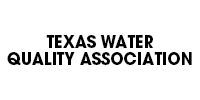FAQs
Sanford Water Works
Have a water treatment-related question? We have the answer. Check out these FAQs and give us a call today for more information!
-
Why does my water smell?
A foul smell in your water can be concerning and is usually an indication that there are certain contaminants or substances present in the water. The specific cause of the smell can vary depending on several factors, including the source of your water, its treatment process, and potential environmental influences. Here are some common reasons for a strange smell in your water:
- Bacterial Growth: Bacteria can thrive in water, especially if the water is stagnant or has been sitting in pipes for a long time. Bacteria can produce unpleasant odors like a rotten egg or a musty smell.
- Sulfur Compounds: Hydrogen sulfide is a common culprit for a rotten egg smell in water. It can occur naturally in groundwater or be a result of industrial activities.
- Decaying Organic Matter: Organic materials in the water, such as leaves or algae, can decompose and produce odorous compounds, resulting in a foul smell.
- Chlorine or Chloramine: Disinfectants used in water treatment like chlorine or chloramine can sometimes react with organic matter and produce unpleasant odors.
- Chemical Contaminants: Certain chemicals or pollutants can contaminate water and cause it to smell. These can come from industrial runoff, agricultural runoff, or other sources.
- Sewage or Septic System Issues: If there's a problem with the sewage or septic system in your area, it can contaminate the water supply and cause a foul smell.
- Water Heater Issues: A foul smell in hot water may be due to bacteria in the water heater tank or sulfur-reducing bacteria reacting with the anode rod in the water heater.
If you're looking for professional water treatment services, look no further than Sanford Water Works! We will test and analyze your water to create a solution that makes it safe to use and drink.
-
Is well water or tap water safe to drink?
In Texas, both well water and tap water can be safe for consumption with appropriate measures. However, it's important to note that many municipalities in the state highly recommend using filtered water systems for drinking rather than consuming water directly from the tap. This recommendation is often made to address potential concerns related to water quality. Here’s a quick rundown of well water and tap water safety.
Well Water Safety: Well water is sourced from underground aquifers and can vary in quality based on geological conditions. It may contain bacteria and high mineral content, which may not be suitable for direct consumption. Regular testing and appropriate filtration are recommended to ensure it’s safe to drink.
Tap Water Safety: Tap water, provided by municipal water systems, is generally treated to meet safety standards and is regularly monitored for quality. However, additional filtration can provide an extra layer of protection and address any localized concerns. According to the CDC, over two billion people lack access to safely managed drinking water at home, validating the importance of water safety and treatment.
If you have any questions or concerns about improving the quality of your drinking water for your home, business, or industrial facility, we encourage you to reach out to our professional water treatment team today. We are here to provide expert guidance and solutions to help ensure the safety and quality of your drinking water.
-
What is the difference between tap water and reverse osmosis water?
Here's what you should know about tap water and reverse osmosis water:
Tap Water: Tap water is the water provided by your local municipal water system. It undergoes treatment processes to ensure it meets specific safety and quality standards. However, depending on the location and infrastructure, tap water can still contain impurities, minerals, or additives.
Reverse Osmosis Water (RO Water): Reverse osmosis water, often found in bottled form at local grocery stores, is water purified through a reverse osmosis system. This process involves filtering water through a semipermeable membrane, effectively removing 95-97% of impurities. including viruses, bacteria, minerals, PFAS, and other contaminants. The removal of these impurities results in safe and high-quality drinking water. Opting for reverse osmosis water allows you to enjoy the benefits of exceptionally clean and pure drinking water.
If you're interested in experiencing the advantages of a reverse osmosis system for your home, business, or industrial facility, don't hesitate to reach out to us. Call us to get started with our services and enhance your water quality today!
-
How do I deal with red and black stains in my bathtub and toilets?
Red and black stains commonly found in toilets and bathtubs in southwest Texas are often caused by elevated levels of iron and manganese in the water. These minerals can react with the surfaces, leading to unsightly stains over time.
To effectively deal with these stains, a comprehensive water treatment approach is recommended. Our water treatment services focus on correcting your property's water supply by reducing iron and manganese levels. By implementing appropriate treatment methods, we can help eliminate current stains and prevent future occurrences, ensuring a cleaner and more aesthetically pleasing bathroom.
If you're struggling with red and black stains in your fixtures and want a lasting solution, reach out to our team today. We're dedicated to providing water treatment services that will improve your water quality and maintain a stain-free environment in your home. Contact us to learn more and take the first step towards a stain-free bathroom!
-
What does a water softener system do and do I need one?
A water softener system is designed to remove magnesium and calcium, commonly known as "hardness minerals," from your drinking water. These two elements cause scaling in your property's water, clogged showers and sink fixtures, and reduced efficiency in your property's heating appliances.
With a water softener, you can expect the following benefits:
- Reduced Scaling: By eliminating hardness minerals, a water softener helps prevent scaling, preserving the efficiency and longevity of your plumbing fixtures and appliances.
- Improved Soap Efficiency: Softened water allows soaps and detergents to lather more easily, reducing the amount of soap needed for cleaning, and ultimately saving on soap consumption and costs.
- Extended Appliance Life: Water softeners can prolong the lifespan of water-related appliances like washing machines, dishwashers, and water heaters by preventing scale buildup.
If you're experiencing issues related to scaling, clogged fixtures, or increased soap consumption, a water softener can be highly beneficial. Additionally, if your water supply has high levels of calcium and magnesium, investing in a water softener is a wise choice to enhance water quality and preserve your property's plumbing and appliances.
At Sanford Water Works, we specialize in the installation of water softener systems to remove hardness from your property's water supply. Enjoy the advantages of softened water and improve the efficiency and longevity of your plumbing and appliances. Contact us today to schedule the installation of a water softener system. Say goodbye to hard water problems and give us a call today!
-
Is RO water good for me?
Yes, reverse osmosis water is considered one of the healthiest options for drinking water. The reverse osmosis process effectively removes 95 to 97% of impurities from the water, including contaminants like viruses, bacteria, minerals, and other particles.
To further improve water quality, a pH alkaline-adjusting filter can be added to the RO system. This additional step ensures that you receive the highest quality water, enhancing the overall purity and taste.
If you prioritize having access to clean and pure drinking water, investing in a reverse osmosis system is an excellent choice. Experience the benefits of RO water and ensure you're consuming the healthiest water possible. Reach out to us for reliable reverse osmosis system installation services.
-
Can I save water with an irrigation system?
Yes, a properly installed irrigation system is a key tool for efficient water usage. It allows for controlled water distribution, ensuring that your landscape gets the right amount of water without wastage.
One of the benefits of an irrigation system is its ability to prevent runoff on your property. The system delivers water directly to the root zones of plants, minimizing wasteful runoff and ensuring optimal absorption.
Moreover, integrating smart sensors into your irrigation system further enhances water conservation. These sensors can detect existing precipitation and moisture levels, ensuring the system does not operate when sufficient moisture is already present in the soil.
With over 50 years of experience in the irrigation business, Sanford Water Works prioritizes water conservation. Water is a precious resource, especially in South Texas, and efficient irrigation is crucial for its conservation. Our expertise allows us to install irrigation systems that are both effective and environmentally responsible. Opt for our irrigation services to conserve water efficiently and make a positive impact on the environment. Contact us today to explore how we can help you save water with our specialized irrigation solutions.
-
How much does an irrigation system cost?
For a typical yard, the cost of installing an irrigation system typically ranges from $3,000 to $5,000. However, the actual cost may vary based on various factors, including the size and layout of your yard, the complexity of the system, the types of components used, and any additional features or customizations.
For a more accurate cost estimate tailored to your specific needs, we recommend reaching out to our team. We'll assess your requirements and provide you with detailed pricing information for our irrigation system installation services. Contact us today to learn about the pricing options available for your property.
-
How long does it take to install an irrigation system?
For an average-sized yard, irrigation system installation takes one to two days.
Call Sanford Water Works at (830) 376-6980 to learn more about our irrigation system services!
serving Area
Uvalde, TX
Del Rio, TX
Leakey, TX
Utopia, TX
Camp Wood, TX
Carrizo Springs, TX
Crystal City, TX
Concan, TX
Bracketville, TX
La Pryor, TX
Barksdale, TX
Sabinal, TX
Hondo, TX
Castroville, TX
Contact Us
Main Phone: (830) 376-6980
Local Phone: (830) 278-6820
Mobile Phone: (830) 278-6820
Alternate Phone: (501) 837-6596
Business Hours
- Mon - Thu
- -
- Friday
- -
- Sat - Sun
- Closed






Share On: